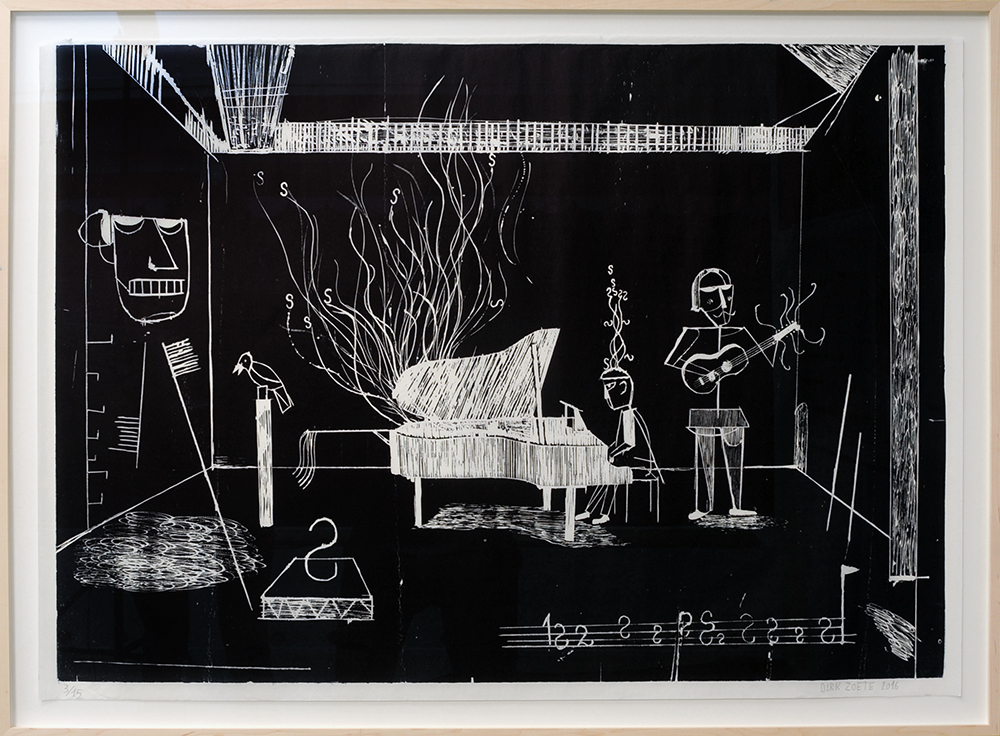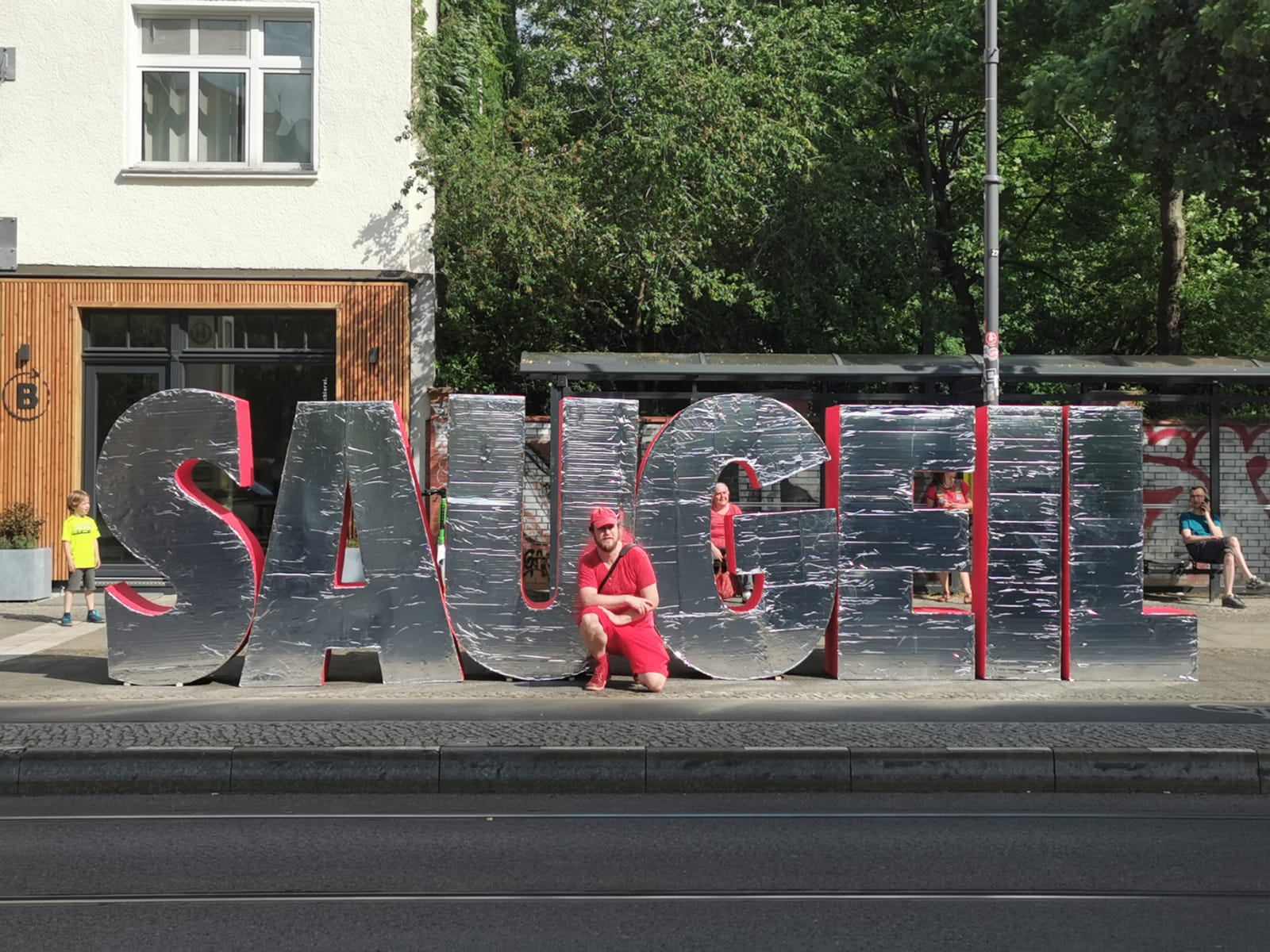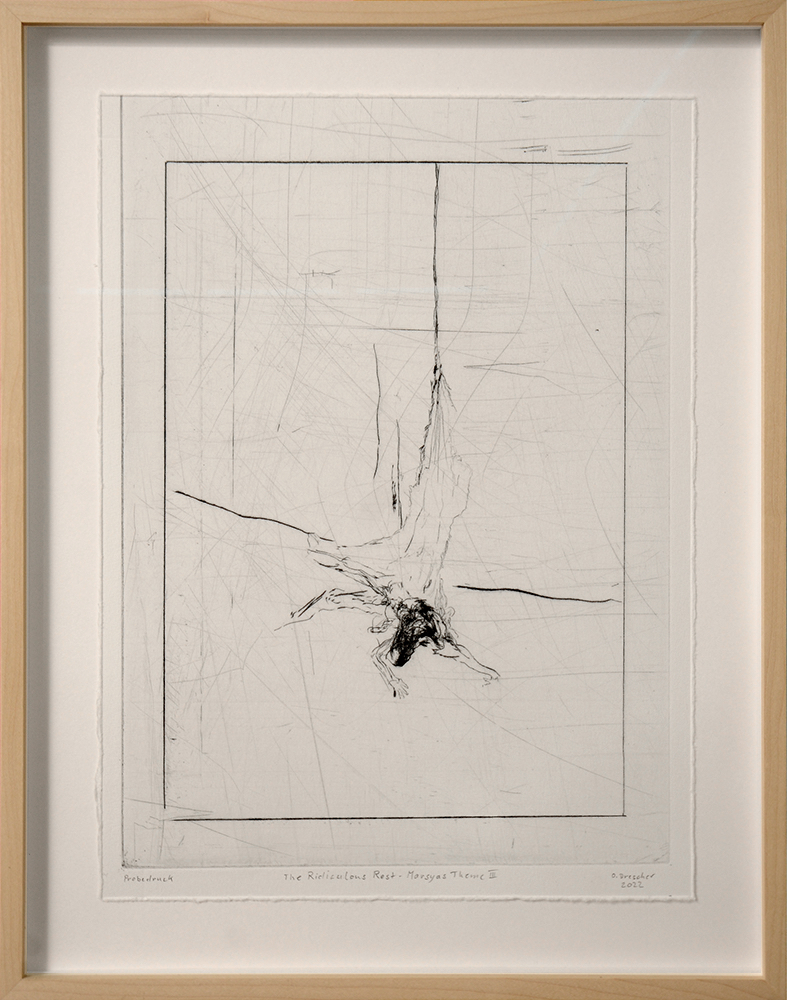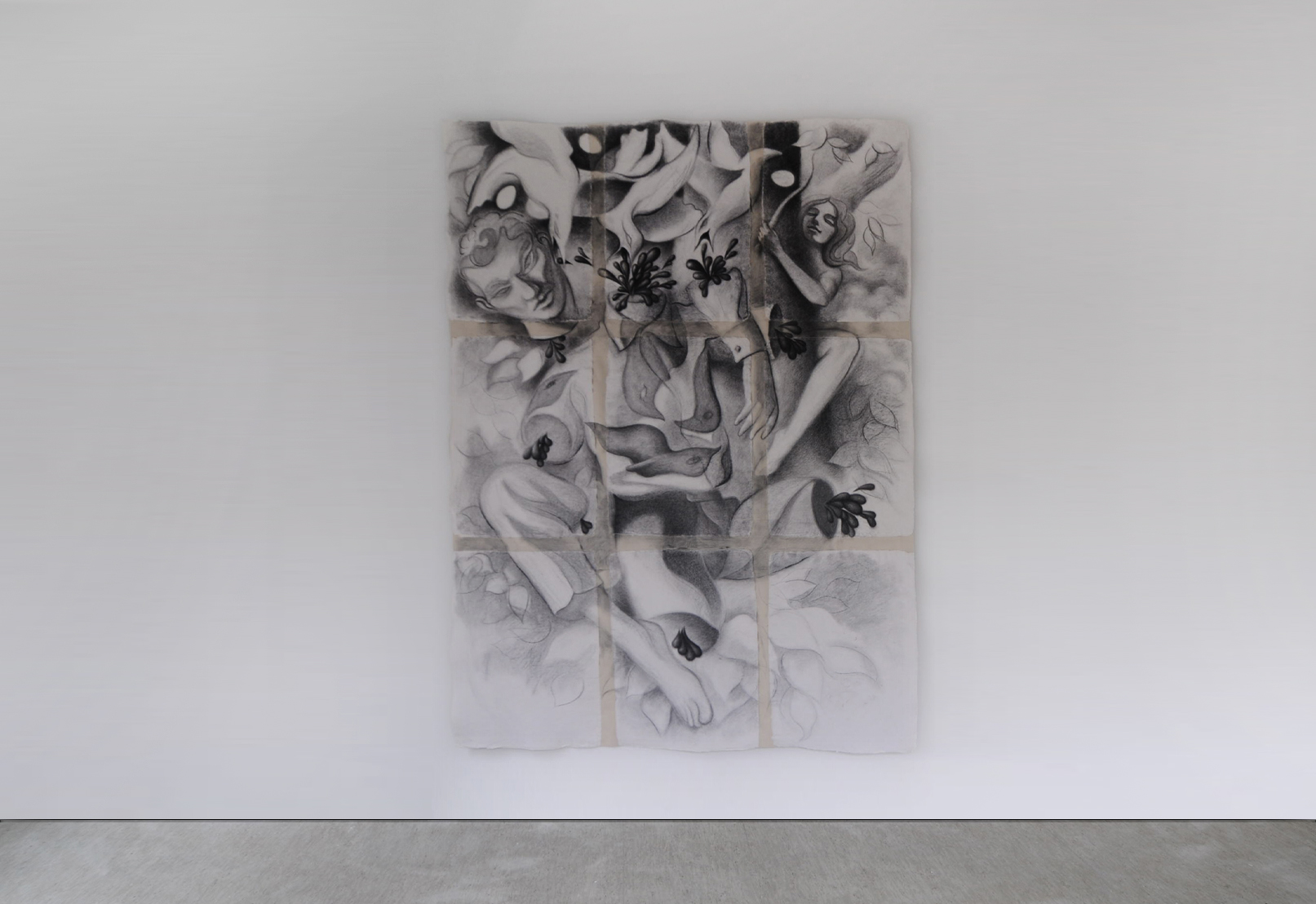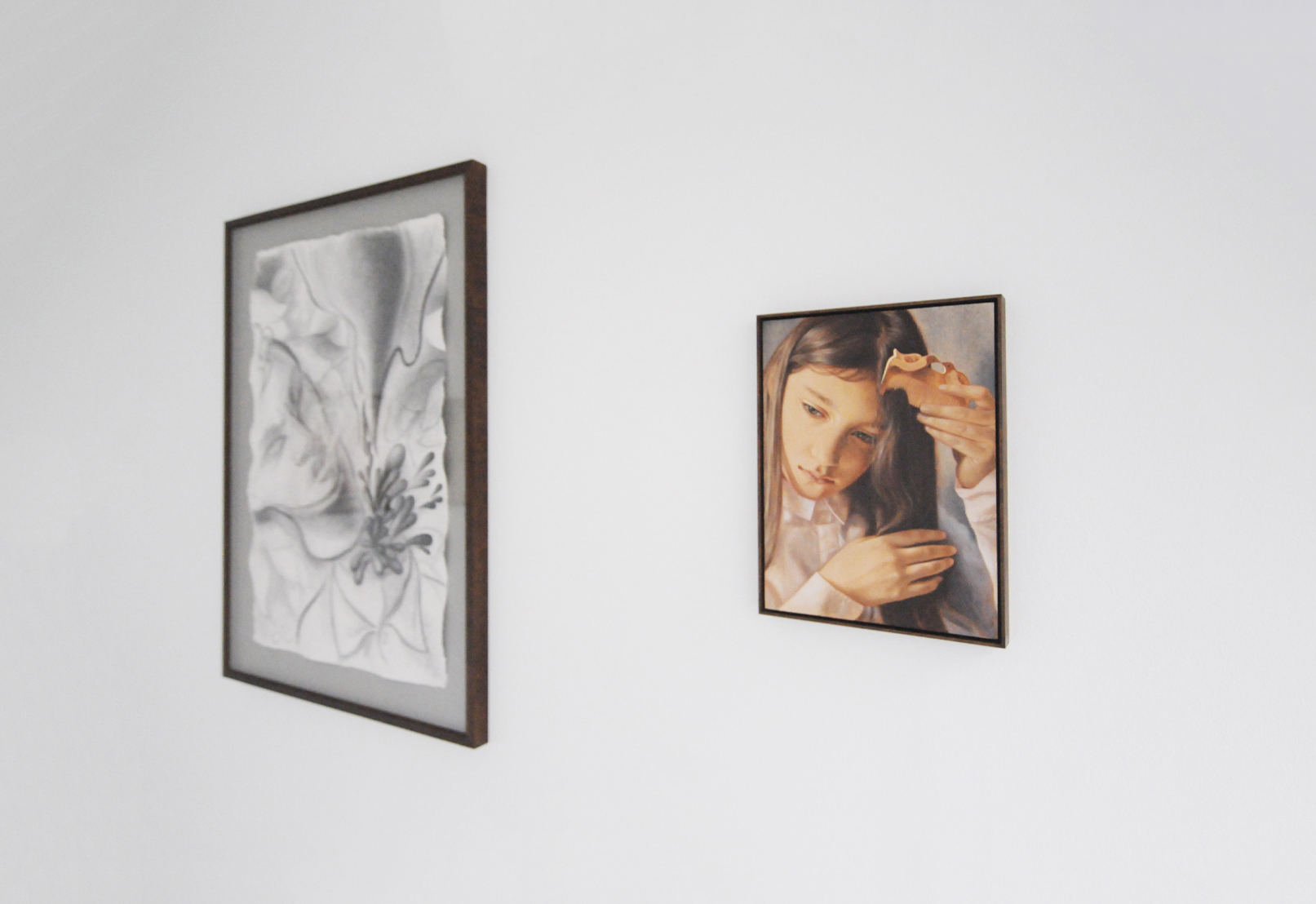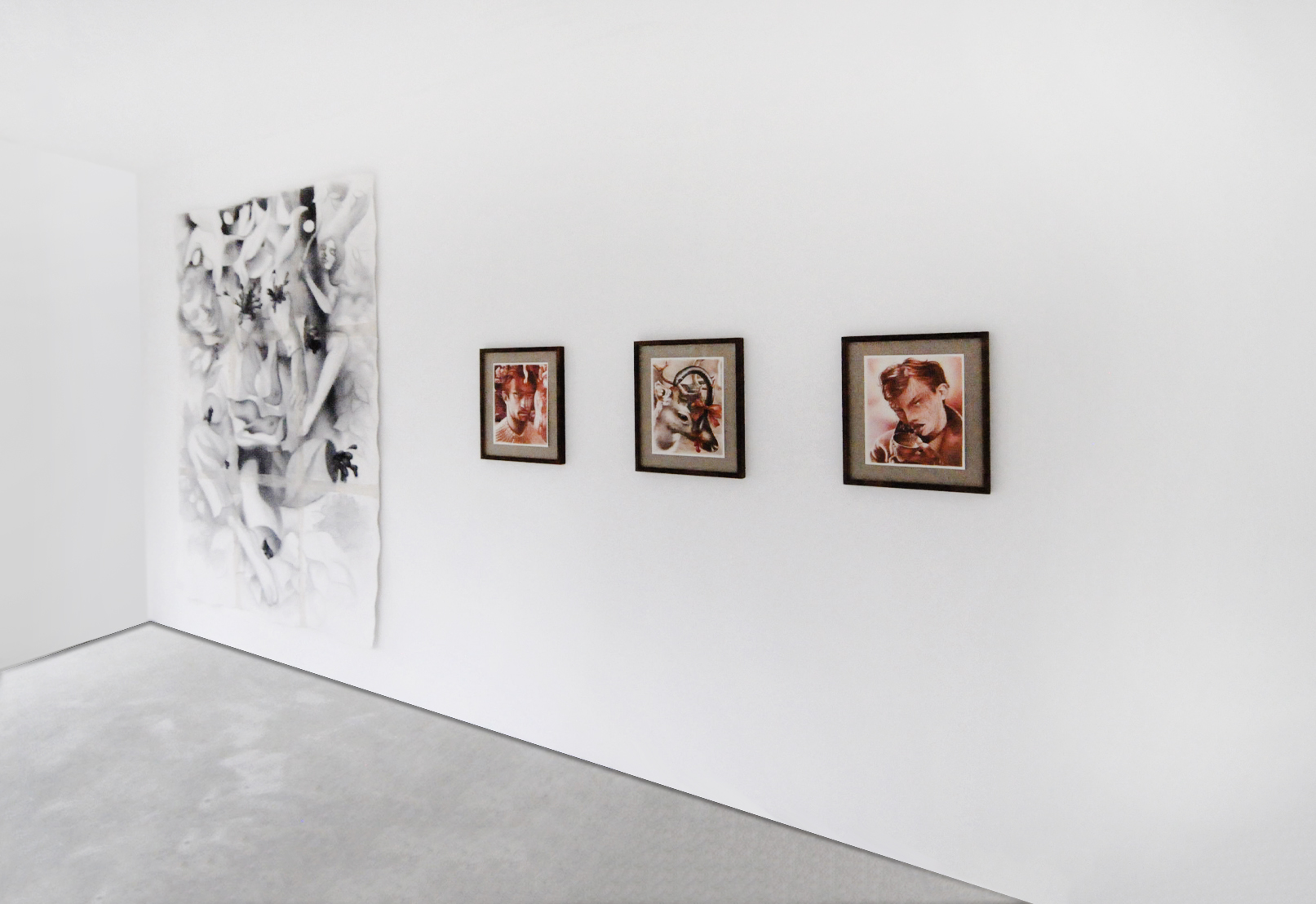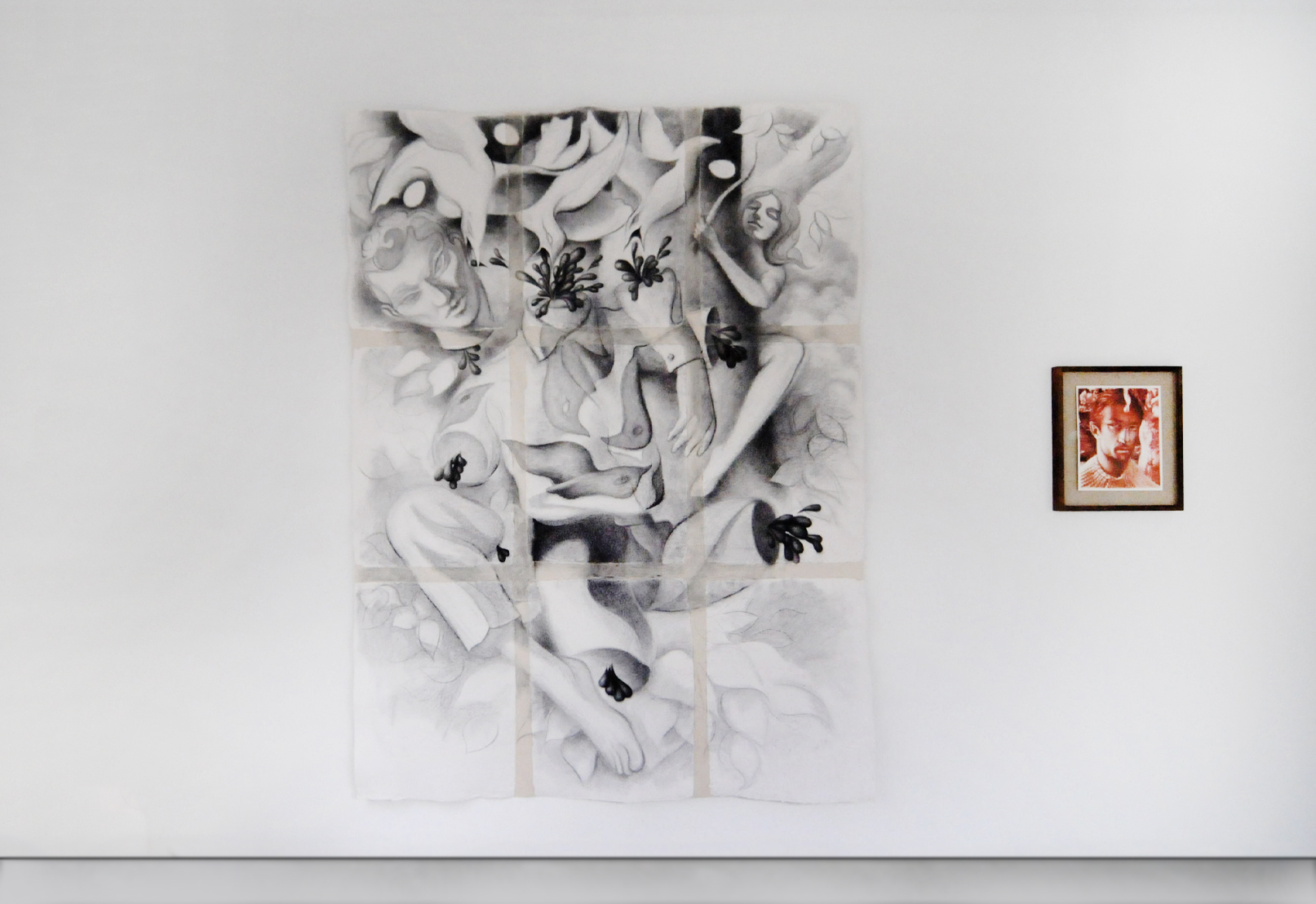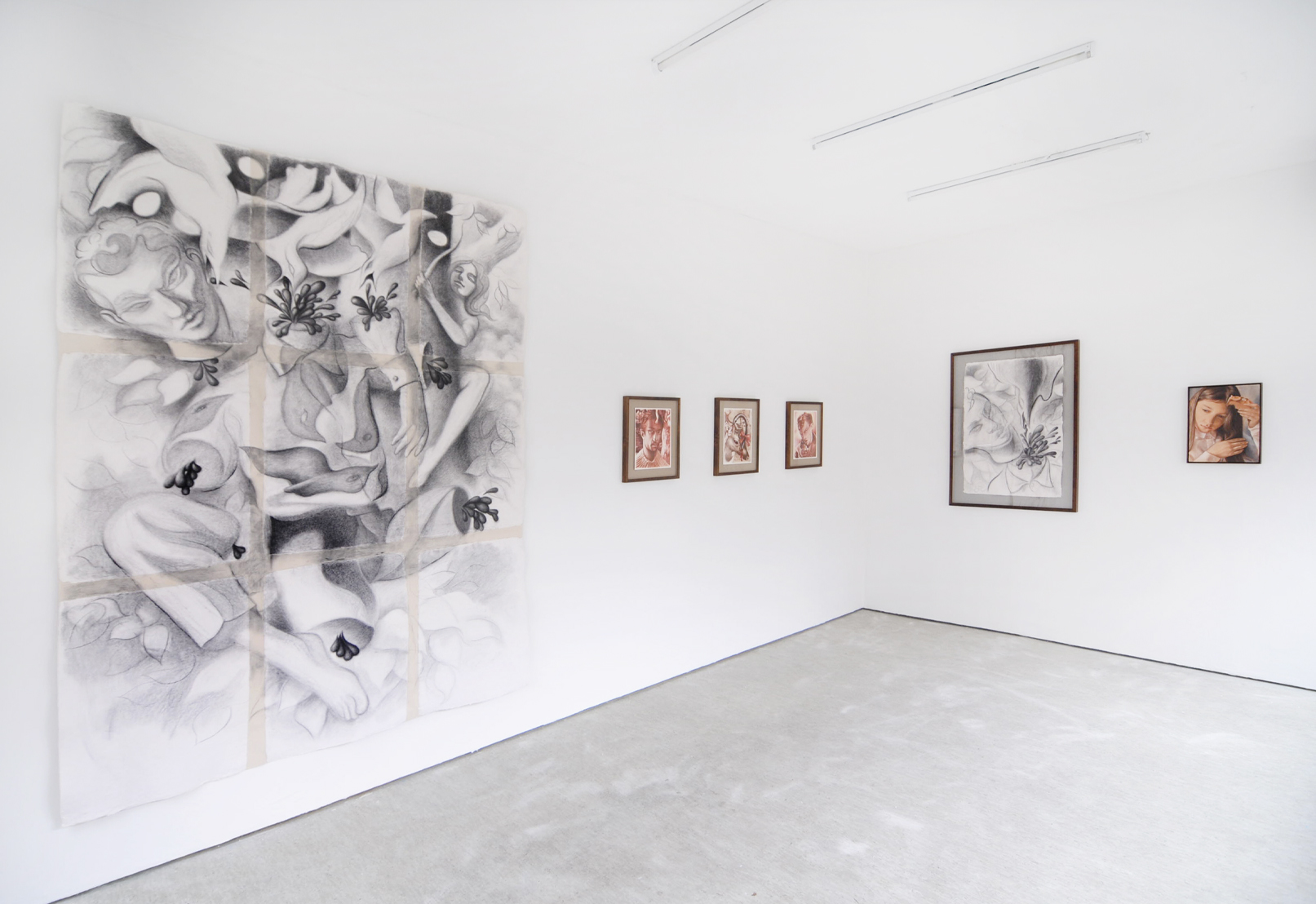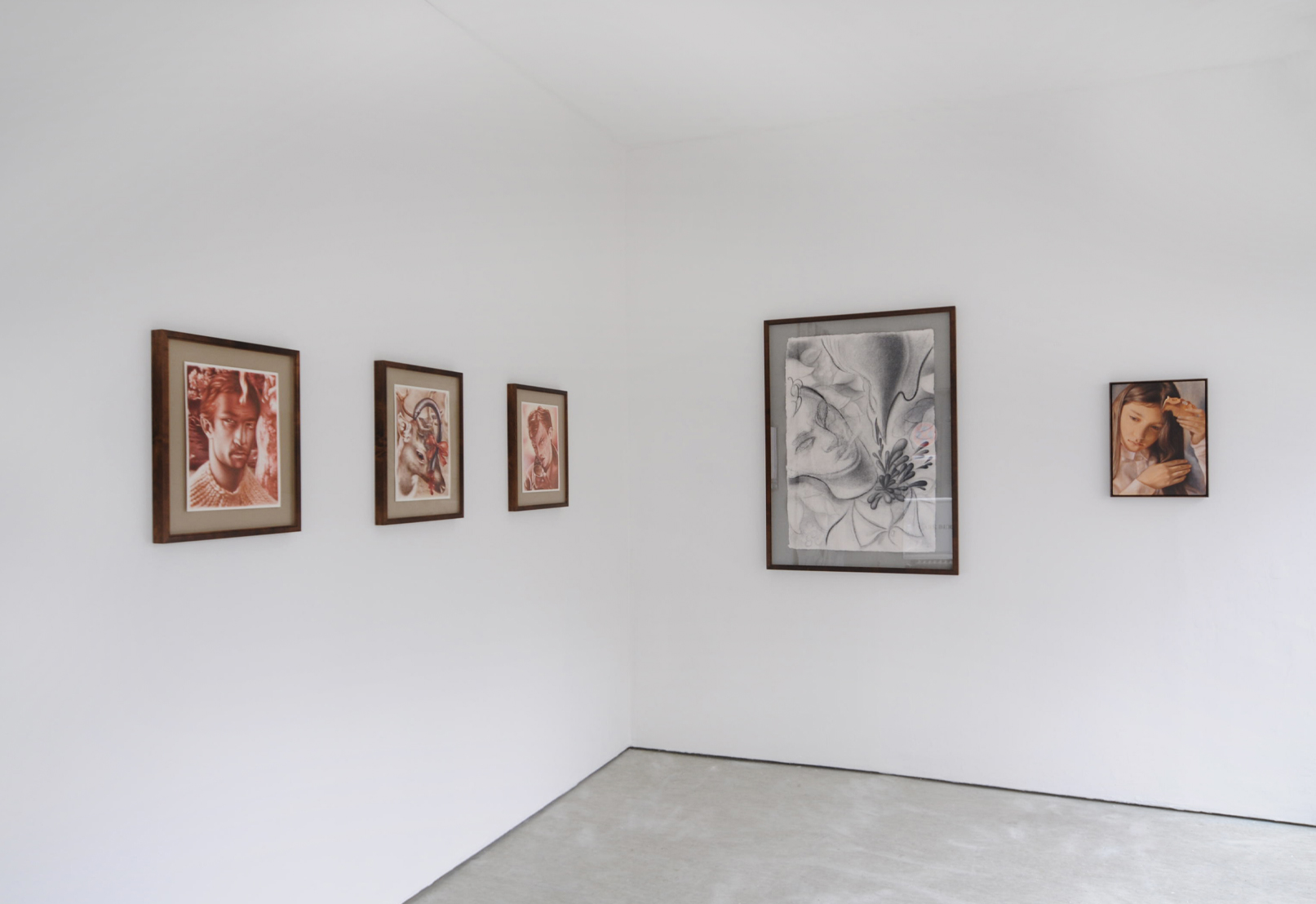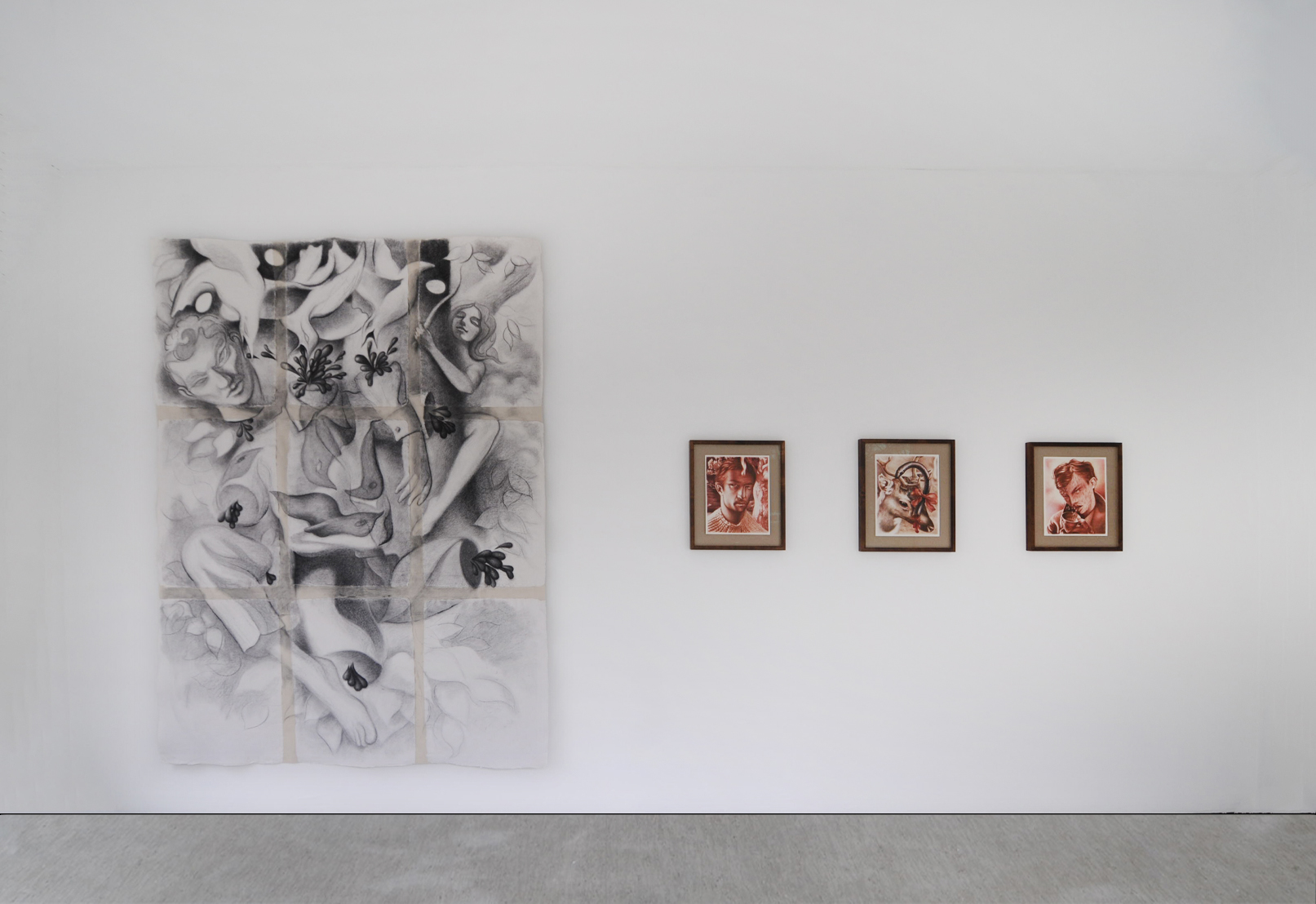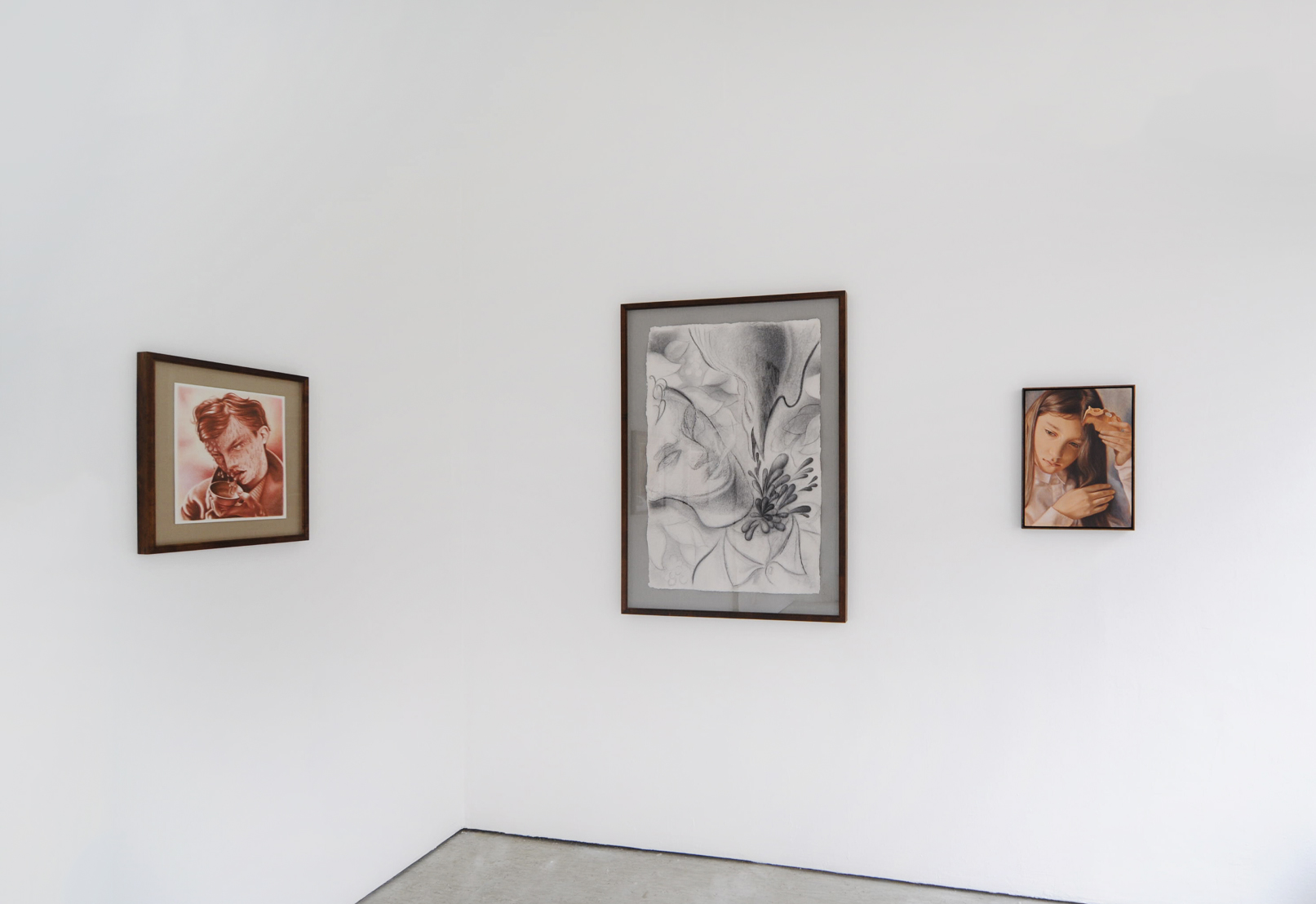Dennis Scholl: The Letter and the Organs of Giving : Verena Kerfin Gallery, Köthener Strasse 28, Berlin 10963
Past
exhibition
Overview
The depiction of fragmented bodies has held a persistent place in the artistic and religious imagination since the Baroque period. Historically, wax votive offerings of body parts were created as devotional objects in Catholic rituals, symbolizing ailments or desires for healing. These items were physical manifestations of human fragility and pleas for divine intervention. This intersection of the corporeal and spiritual finds contemporary resonance in Dennis Scholl's work, where the focus on dismemberment and bodily orifices moves beyond mere fragmentation to embody acts of offering and connection.
In the pieces presented, Scholl draws attention to the porous boundaries between the interior and exterior of the body. Titles such as "Hergeben" ("Giving"), "Das Versöhnende" ("The Reconciliation"), and "Der Gesang des Votanten" ("The Song of the Petitioner") suggest a ritualistic surrender, echoing religious acts of devotion. However, Scholl reinterprets the traditional votive gesture through a lens of intimacy and vulnerability. Bodily fluids—tears, sweat, saliva, and blood—are transformed into metaphoric offerings, articulating a bridge between internal states and their external manifestations.
A striking element in this series is Scholl's homage to the animal world, where the human form becomes a gift to nature. This recalls Ex Voto traditions, wherein offerings were created as an expression of gratitude or a plea for intervention. Yet, in Scholl's interpretation, the act of creating art itself becomes a form of healing. This distinction shifts the focus from salvation through an external force to the redemptive power of artistic expression, challenging the viewer to reconsider the transactional nature of traditional spiritual practices.
The visual language employed by Scholl navigates a delicate interplay between horror and tenderness. While the fragmentation of the human body often evokes traumatic associations—such as the dismembered forms in Francisco Goya’s "The Disasters of War"—Scholl's works counterbalance this sense of violence with an intimate softness. Jacques Lacan's concept of the "mirror stage," which describes the human perception of bodily unity, serves as a counterpoint. By disrupting this wholeness, Scholl opens up possibilities for reimagining the self not as a bounded entity, but as a dynamic interplay of internal and external forces.
In the imagery presented, delicate graphite drawings and meticulously rendered portraits emphasize an almost surreal interplay between realism and abstraction. The juxtaposition of a childlike figure gently parting her hair with a symbolic fragment and a larger-than-life, sprawling grayscale composition of entangled bodies and flora evokes both Renaissance anatomical studies and contemporary explorations of hybridity. This merging of human and botanical forms invites comparison to the biomorphic sculptures of Louise Bourgeois, whose works similarly dissect the intersections of vulnerability, memory, and corporeality. Scholl's exploration of "desire for the wound" recalls the writings of Georges Bataille, who emphasized the sacred nature of transgression and the simultaneous allure and repulsion of the open body. In this framework, wounds become sites of both rupture and connection—spaces where boundaries dissolve and new relationships are formed. The layering of these historical and theoretical references enriches the visual and conceptual impact of the installation.
By embracing fragmentation not as a loss but as a generative force, Scholl crafts a narrative of reconciliation and openness. The artworks invite viewers into a space where human and animal, sacred and profane, interior and exterior converge in a tender yet profound meditation on the porousness of existence. In this way, Scholl revitalizes the votive tradition for contemporary audiences, transforming acts of severance into offerings of connection and love.
In the pieces presented, Scholl draws attention to the porous boundaries between the interior and exterior of the body. Titles such as "Hergeben" ("Giving"), "Das Versöhnende" ("The Reconciliation"), and "Der Gesang des Votanten" ("The Song of the Petitioner") suggest a ritualistic surrender, echoing religious acts of devotion. However, Scholl reinterprets the traditional votive gesture through a lens of intimacy and vulnerability. Bodily fluids—tears, sweat, saliva, and blood—are transformed into metaphoric offerings, articulating a bridge between internal states and their external manifestations.
A striking element in this series is Scholl's homage to the animal world, where the human form becomes a gift to nature. This recalls Ex Voto traditions, wherein offerings were created as an expression of gratitude or a plea for intervention. Yet, in Scholl's interpretation, the act of creating art itself becomes a form of healing. This distinction shifts the focus from salvation through an external force to the redemptive power of artistic expression, challenging the viewer to reconsider the transactional nature of traditional spiritual practices.
The visual language employed by Scholl navigates a delicate interplay between horror and tenderness. While the fragmentation of the human body often evokes traumatic associations—such as the dismembered forms in Francisco Goya’s "The Disasters of War"—Scholl's works counterbalance this sense of violence with an intimate softness. Jacques Lacan's concept of the "mirror stage," which describes the human perception of bodily unity, serves as a counterpoint. By disrupting this wholeness, Scholl opens up possibilities for reimagining the self not as a bounded entity, but as a dynamic interplay of internal and external forces.
In the imagery presented, delicate graphite drawings and meticulously rendered portraits emphasize an almost surreal interplay between realism and abstraction. The juxtaposition of a childlike figure gently parting her hair with a symbolic fragment and a larger-than-life, sprawling grayscale composition of entangled bodies and flora evokes both Renaissance anatomical studies and contemporary explorations of hybridity. This merging of human and botanical forms invites comparison to the biomorphic sculptures of Louise Bourgeois, whose works similarly dissect the intersections of vulnerability, memory, and corporeality. Scholl's exploration of "desire for the wound" recalls the writings of Georges Bataille, who emphasized the sacred nature of transgression and the simultaneous allure and repulsion of the open body. In this framework, wounds become sites of both rupture and connection—spaces where boundaries dissolve and new relationships are formed. The layering of these historical and theoretical references enriches the visual and conceptual impact of the installation.
By embracing fragmentation not as a loss but as a generative force, Scholl crafts a narrative of reconciliation and openness. The artworks invite viewers into a space where human and animal, sacred and profane, interior and exterior converge in a tender yet profound meditation on the porousness of existence. In this way, Scholl revitalizes the votive tradition for contemporary audiences, transforming acts of severance into offerings of connection and love.
Installation Views
×
![]()
×
